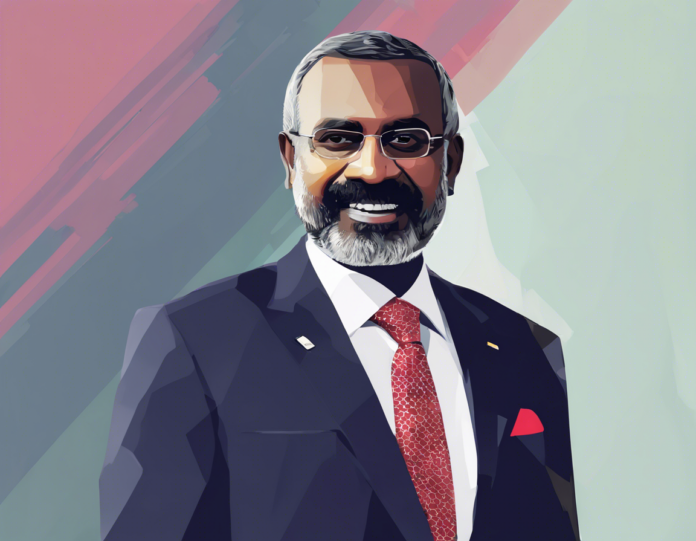Introduction
Mohamed Muizzu, a prominent figure in Maldivian politics, served as the President of the Maldives from 2023 to 2031. His presidency was marked by numerous challenges and achievements, shaping the political landscape of the Maldives during his tenure. In this blog post, we will delve into the various aspects of Mohamed Muizzu’s presidency, examining his leadership style, key policies, challenges faced, and legacy.
Early Life and Political Career
Mohamed Muizzu was born in Malé, the capital city of the Maldives, in 1970. He pursued his education both domestically and internationally, obtaining a degree in political science from the University of Malé and later completing a Master’s degree in Public Administration from a prestigious university in the United Kingdom.
Muizzu’s political career began in the early 2000s when he joined the Maldivian Democratic Party (MDP), a prominent political party in the Maldives, known for its pro-democracy stance. He quickly rose through the ranks of the party, holding various positions within the party structure and gaining a reputation as a charismatic and forward-thinking leader.
Presidential Tenure
After a closely contested election in 2023, Mohamed Muizzu was elected as the President of the Maldives, succeeding his predecessor. His presidency was characterized by a focus on economic development, infrastructure projects, environmental conservation, and social welfare programs.
Key Policies and Initiatives
During his tenure, Muizzu introduced several key policies and initiatives aimed at transforming the Maldives and improving the lives of its citizens:
-
Economic Diversification: Muizzu implemented policies to diversify the Maldivian economy, reducing its reliance on tourism and fishing. He promoted industries such as technology, renewable energy, and sustainable agriculture to create new opportunities for economic growth.
-
Infrastructure Development: One of Muizzu’s flagship initiatives was the ambitious infrastructure development program, which aimed to improve transportation networks, upgrade healthcare facilities, and modernize public utilities across the Maldives.
-
Environmental Conservation: Recognizing the threat of climate change to low-lying island nations like the Maldives, Muizzu championed environmental conservation efforts, including initiatives to combat plastic pollution, protect marine ecosystems, and promote renewable energy sources.
-
Social Welfare Programs: Muizzu also prioritized social welfare programs, including healthcare reforms, education initiatives, and poverty alleviation schemes aimed at improving the quality of life for all Maldivians.
Challenges Faced
Despite his accomplishments, Mohamed Muizzu faced several challenges during his presidency. Political opposition, economic fluctuations, environmental disasters, and social unrest tested his leadership skills and policy decisions. Managing these challenges while staying true to his vision for the Maldives required resilience, adaptability, and strategic thinking.
Legacy
Mohamed Muizzu’s presidency left a lasting impact on the Maldives, shaping its trajectory for years to come. His emphasis on sustainable development, environmental protection, and social welfare set a precedent for future leaders to follow. The infrastructure projects initiated during his tenure continue to benefit Maldivian citizens, while his focus on economic diversification laid the foundation for a more resilient and diversified economy.
Conclusion
In conclusion, Mohamed Muizzu’s presidency was a transformative period in the history of the Maldives. His visionary leadership, strategic policymaking, and commitment to progress helped propel the Maldives onto the global stage as a modern, sustainable, and socially conscious nation. While challenges were plentiful, Muizzu’s legacy as President of the Maldives endures, serving as a testament to the power of effective governance and bold decision-making in shaping the future of a nation.
FAQs (Frequently Asked Questions)
- What were Mohamed Muizzu’s key priorities as President of the Maldives?
-
Economic diversification, infrastructure development, environmental conservation, and social welfare programs were among Muizzu’s key priorities during his presidency.
-
How did Mohamed Muizzu address the threat of climate change in the Maldives?
-
Muizzu championed environmental conservation efforts, including initiatives to combat plastic pollution, protect marine ecosystems, and promote renewable energy sources to address the threat of climate change.
-
What challenges did Mohamed Muizzu face during his presidency?
-
Political opposition, economic fluctuations, environmental disasters, and social unrest were some of the challenges faced by Mohamed Muizzu during his presidency.
-
What is Mohamed Muizzu’s legacy as President of the Maldives?
-
Muizzu’s legacy includes his emphasis on sustainable development, environmental protection, and social welfare, which continue to shape the trajectory of the Maldives.
-
How did Mohamed Muizzu contribute to economic growth in the Maldives?
- Muizzu implemented policies to diversify the Maldivian economy, reduce reliance on tourism and fishing, and promote industries such as technology, renewable energy, and sustainable agriculture to stimulate economic growth.








